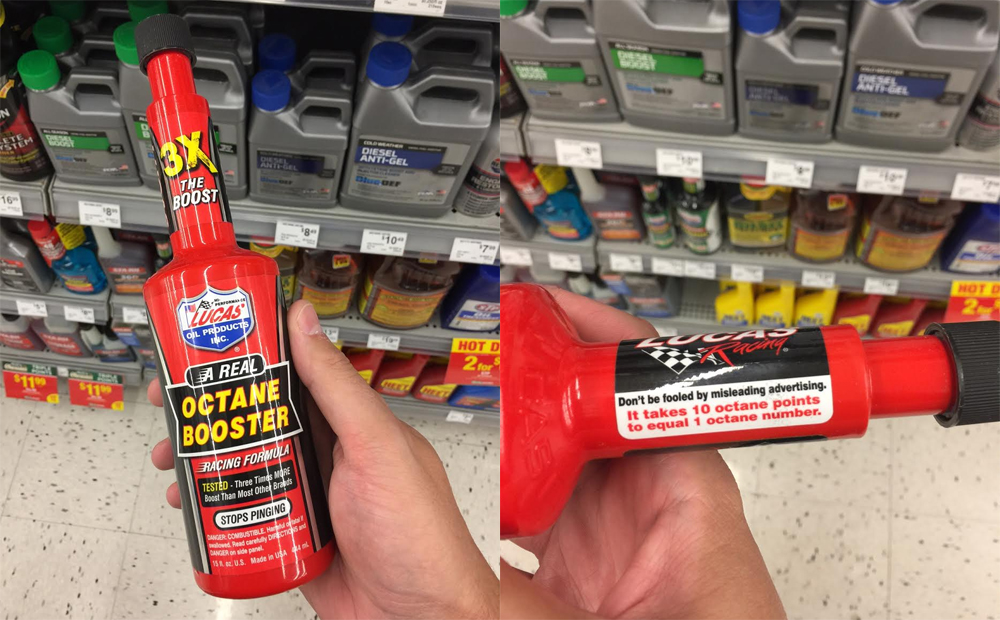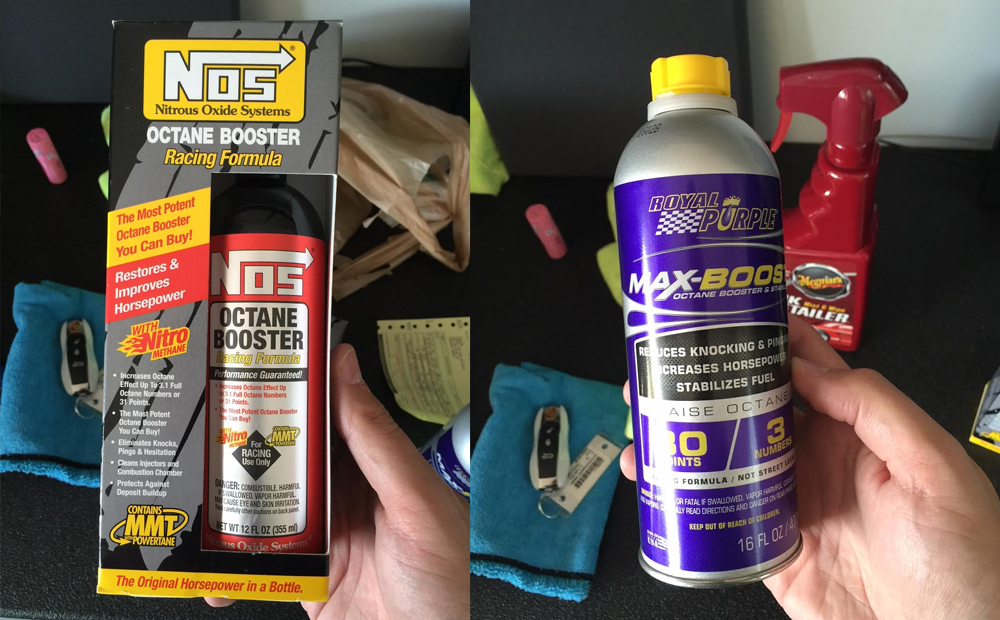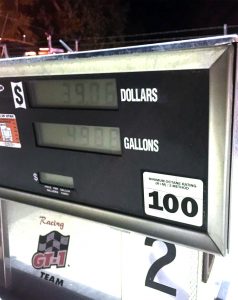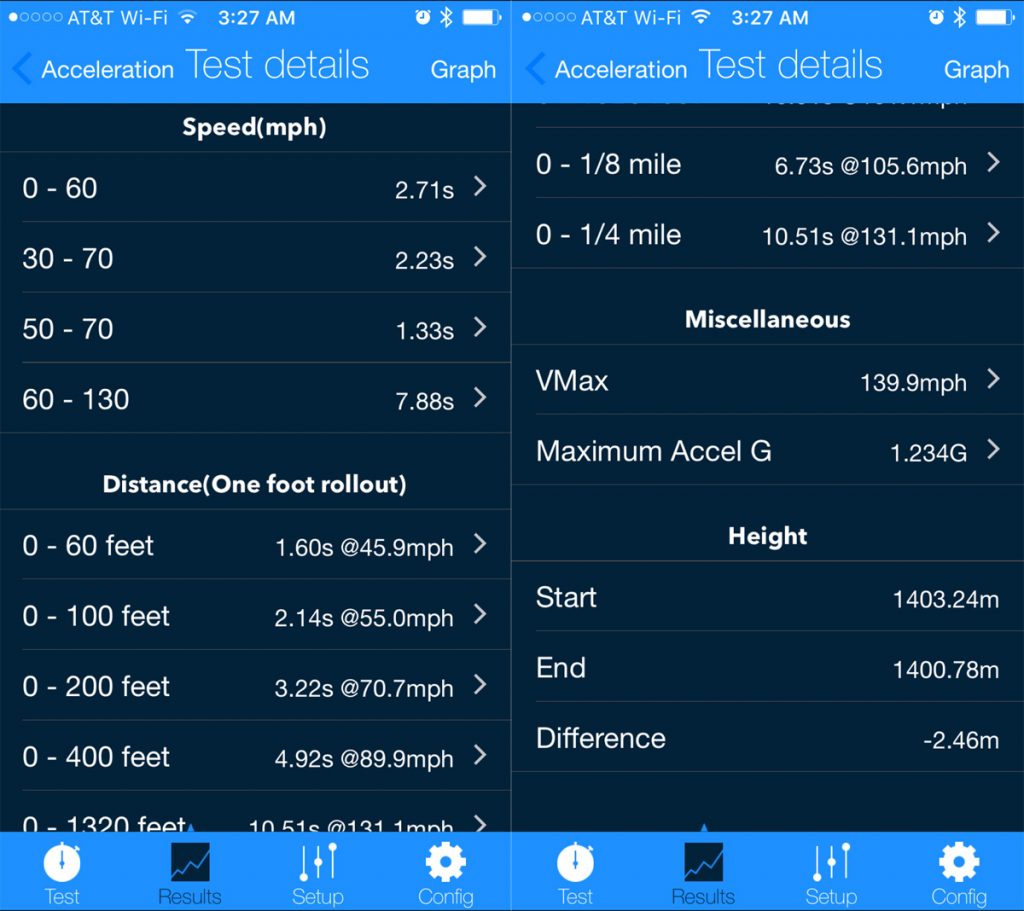I felt like one of the major obstacles on my quest for speed would be the low quality gas here in Utah. After substantial testing I can definitively say that it makes a huge (negative) difference. For the uninitiated here is a great article about octane: How Stuff Works.
While I’m pretty happy with my 91 octane tune I’ve been experimenting with some OTC octane boosters. You have to be careful with these products as the listed benefits are often misleading. Take for example this bottle from Lucas. It has a label that warns you not to be fooled by “misleading advertising”. However, the bottle itself claims “3X the Boost” but provides zero information about potential octane level increases one could expect.

That being said, the Lucas bottle does provide this useful tidbit: “It takes 10 octane points to equal 1 octane number.” Some boosters will boast that they raise your octane level by 7 octane points (or something like that). If you used 91 octane gas and put in that booster you would have 91.7 octane. Hardly an improvement. Buyer beware.
Personally I like the two octane boosters below. They both clearly explain how much your actual octane level will go up. The NOS booster claims up to 6 octane numbers while the Royal Purple provides a boost of 3 octane numbers. Actual octane increases would be difficult to pinpoint but I have used the NOS and Royal purple octane boosters, logged my car’s data and they both seem to provide a definite benefit. Looking at engine data there is virtually no knock when these products are used in conjunction with my 91 octane tune. In contrast, without the boosters small amounts of ignition timing retard are common. So, I’m a believer!

Note: If you log your car’s data and see any ignition timing being pulled it’s very possible an octane booster could help your car run more smoothly. However, without aftermarket tuning it’s unlikely the car will be any faster. To illustrate this point: While my car has certainly benefited from these products I haven’t necessarily really seen any speed gains. I would have to create a 94-ish octane tune to take advantage of the modified fuel.
After playing around with octane boosters it was time for the big leagues. It took awhile but I found a location in Provo (Christensen Oil) that sells 100 octane unleaded at the pump. It’s not cheap but I decided science demanded that I try it. I filled up my nearly empty car with the 100…
…and after putting on a new 100 octane tune I could tell right away there was some magic happening. The top end power really filled in and came alive. I was so excited that I decided to drive out to my private racetrack that night and do a couple of runs. I did some 3rd gear pulls for data analysis. They looked good so I decided to go for the whole quarter mile.
The launch was perfect- the wheels just hooked up and then the car exploded forward. The acceleration was finally intoxicating and the car just keep pulling. I could tell I got to 130 pretty quickly and the results were as good as I could have hoped for:
That’s a huge amount of time shaved off with the race gas and tune. No tricks, no gimmicks, no games (i.e ice on the intercoolers, driving down a huge hill, etc). This run comes right on the heels of several 3rd gear pulls to 100 mph. I’ve even got catalytic converters on my car which makes the number even more impressive (I think I could shave off another 2/10ths with them off- more on that later). With this set up I feel like I’ve got a good shot at running my first “official” 10 second quarter when I hit RMR on the 9th. We’ll see.
So, in conclusion- octane boosters can be beneficial. Although to achieve next level performance it’s necessary to run much higher octane fuel and have a tune that can take advantage of it.


